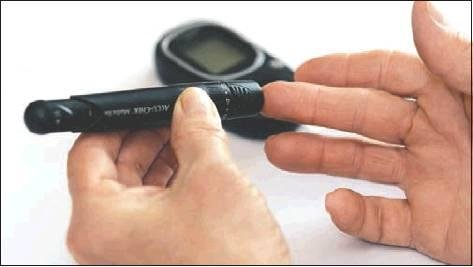Taking care of your diabetes
Ihave been living with Type 1 diabetes for most of my life.
I have made every mistake in the book and learned from them, which helps me better serve my clients as a diabetes educator.
When …
This item is available in full to subscribers.
Subscribe to continue reading. Already a subscriber? Sign in
Get 50% of all subscriptions for a limited time. Subscribe today.
Please log in to continueNeed an account?
|
Taking care of your diabetes
Ihave been living with Type 1 diabetes for most of my life.
I have made every mistake in the book and learned from them, which helps me better serve my clients as a diabetes educator.
When I first meet a new client, we sit down for a consultation to discuss current health status, medications, budget, goals and more.
Diabetes is not a cookie-cutter disease - it’s different for each person.
I always recommend reducing carbohydrates, because they turn into sugar in the body, regardless of where they come from.
Depending on their current diet, we can reduce that carb intake slowly so it can be more sustainable for them and they feel less deprived.
Even cutting down the portion size of carbohydrates can make a big difference, as well as reading labels and understand nutrition facts per serving.
People with Type 2 diabetes also generally want to lose weight and the same advice goes for them.
When you consume carbohydrates, your body has to release insulin in order to process the carbs into energy for the cells. Insulin is a fat-storing hormone. More often than not, we don’t use the energy that is created and it is stored away for “future use.”
Insulin resistance is also a factor, which means the insulin level in the body can be very high because it is not being used effectively and the body is working extra hard to process those carbs.
Pre-diabetes can come from that same insulin resistance. Some doctors like to prescribe diabetes medications as a means of prevention. This method, however, doesn’t teach anything or create any changes in lifestyle or behavior.
Study after study has shown that lifestyle changes are far more effective than medication at preventing Type 2 diabetes.
If diabetes runs in your family, it is a good idea to talk to your doctor about your risk. There are risk assessment tests that you can take online that can help determine that.
Have your Hemoglobin A1C tested. This measures your average blood glucose reading over a 3-month period. This can tell you much more about your risk or even diagnosis.
Other items that may interest you










Comments
No comments on this item Please log in to comment by clicking here